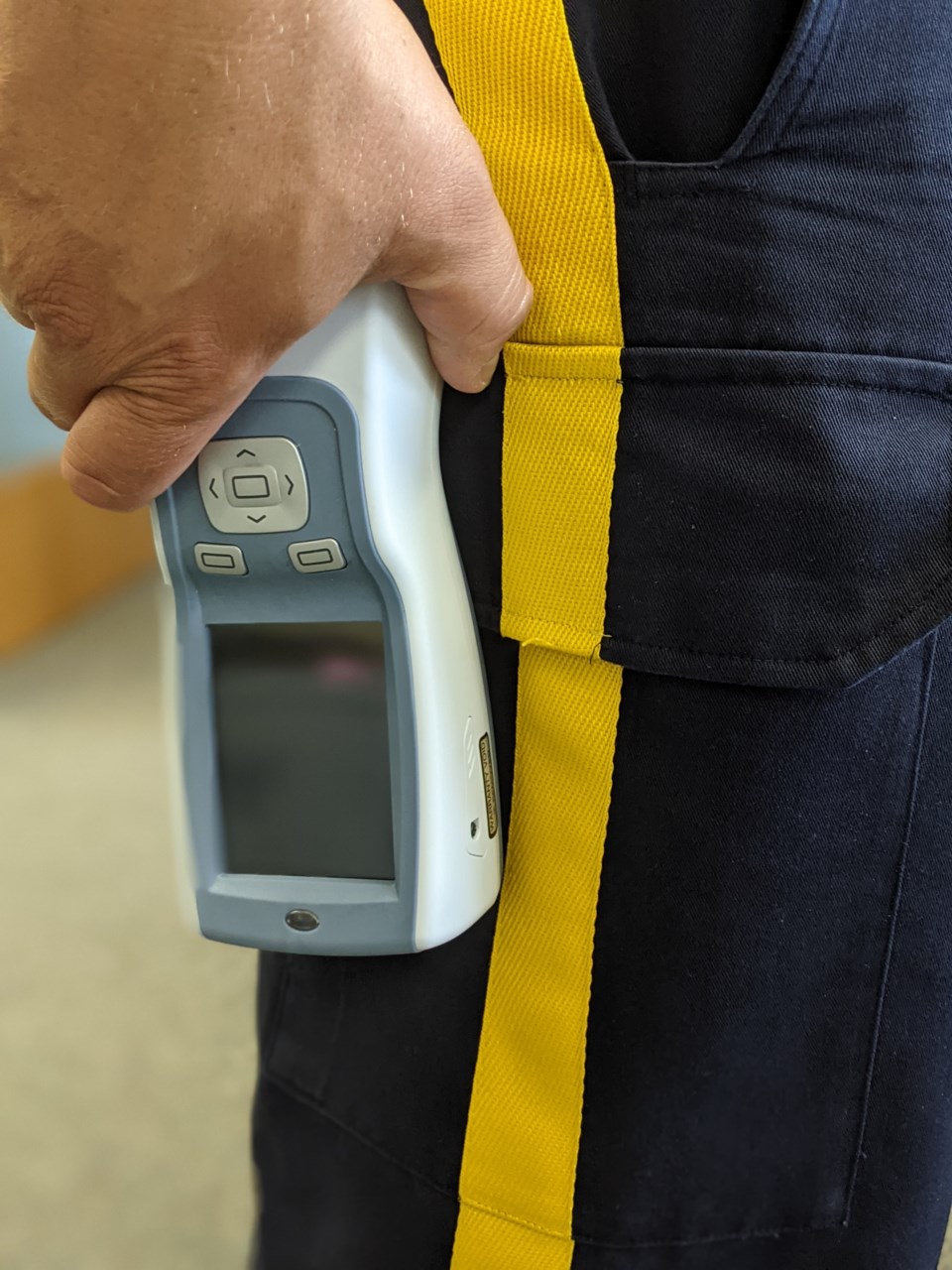Cannabis is now legal to use, but it’s not legal or safe for anyone on the road to drive while impaired by it.
That’s why more Saskatchewan RCMP officers now have access to roadside oral fluid devices, a small, handheld machine used to detect cannabis use by drivers.
“We have zero tolerance for any kind of impaired driving – and that includes impaired by cannabis (THC). The roadside oral fluid devices, which are used across Saskatchewan, are helping us identify drivers that have recently consumed cannabis (THC) and to take more potentially impaired drivers off the road,” explains Cpl. Brian Ferguson, Saskatchewan RCMP’s drug recognition evaluator training co-ordinator.
Cannabis use can be detected in several ways
If an RCMP officer suspects cannabis is a factor in an impaired driving investigation, they can request the driver provide a sample of their oral fluid, the sample is then inserted into the roadside oral fluid device and in as quickly as four minutes, it tells the officer if the person has smoked, vaped or ingested cannabis (THC) recently.
If an RCMP officer has reasonable grounds to believe cannabis (or any type of drug), is a factor in an impaired driving investigation they can demand the driver get a blood test or call out a drug recognition evaluator to assess the driver. These officers are specially trained to use a 12-step process which determines whether a driver is impaired and if so, by what category of drug.
Penalties are high for drug-impaired driving
If someone is convicted of driving while impaired by drug, they will have a criminal record, pay a minimum fine of $1,000 and have their licence suspended for a minimum of one year. Fines are higher and suspensions are longer for subsequent offences. If an officer detects that a driver has recently used cannabis (THC) – regardless if it has impaired them or not –their driver’s license will be suspended and the vehicle they are driving impounded for 72 hours.
In 2021, 289 drivers were taken off the road by Saskatchewan RCMP and Combined Traffic Services Saskatchewan officers for suspected driving while impaired by drug. Ninety-five of these drivers to date have been charged criminally, which may increase as toxicology results are obtained following further investigation.
“We are working hard to drive home the lesson that drugs, including cannabis (THC), and driving are a dangerous mix,” Cpl. Ferguson says.
Effect of edibles, mixing cannabis and alcohol can be unpredictable
If people are using cannabis, and considering driving, Cpl. Ferguson has a few things to keep in mind. The legalization of cannabis has provided users more ways to consume the drug, including edibles.
“Edibles are a completely different beast,” says Cpl. Ferguson. “They can take a long time to kick in. You don’t really know when they are going to take effect, and the effects can last several hours. That needs to be considered before you have to make the decision whether or not you will be able to drive.”
And if you’re mixing drinks and cannabis, he warns that even a small amount of alcohol can enhance the drug’s impairing effects, he says.
“If you choose to use cannabis, alcohol, or any other kind of drug, including any medically prescribed drugs that may alter your ability to safely operate a conveyance, you need to make alternate travel plans so you're not driving while under the influence. Stay home, take transit or a taxi, get a designated driver, do whatever you have to do to not drive impaired,” Cpl. Ferguson says.
“The Saskatchewan RCMP and our partner agencies have absolutely zero tolerance for it, and having more tools like the roadside oral fluid devices will help us with our efforts to keep our roads safe.”





